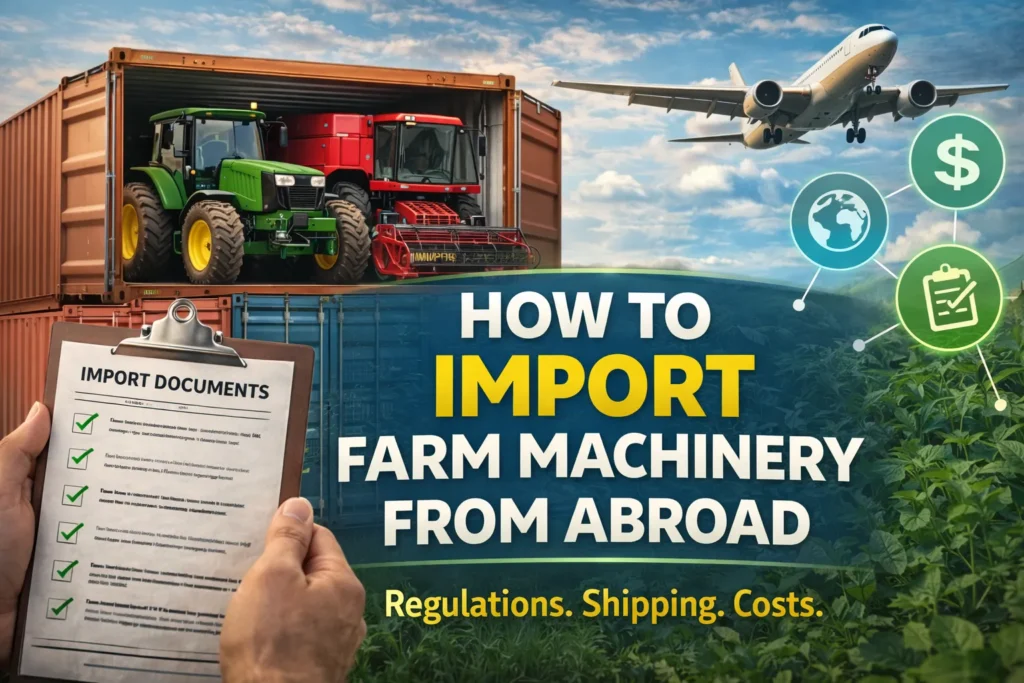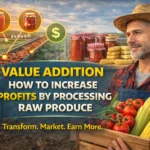Are you considering upgrading your farm with machinery from abroad? Importing farm equipment can seem daunting, but it offers significant advantages.
Imagine having cutting-edge technology at your fingertips, boosting your productivity, and enhancing your harvest quality. This guide will simplify the process for you, breaking down each step to make it manageable and stress-free. You’ll learn how to navigate the complexities of international shipping, understand customs regulations, and ensure you get the best deals.
By the end, you’ll feel confident in your ability to import farm machinery, ready to transform your farming operations. Keep reading to unlock the secrets of successful machinery importation and give your farm the competitive edge it deserves.
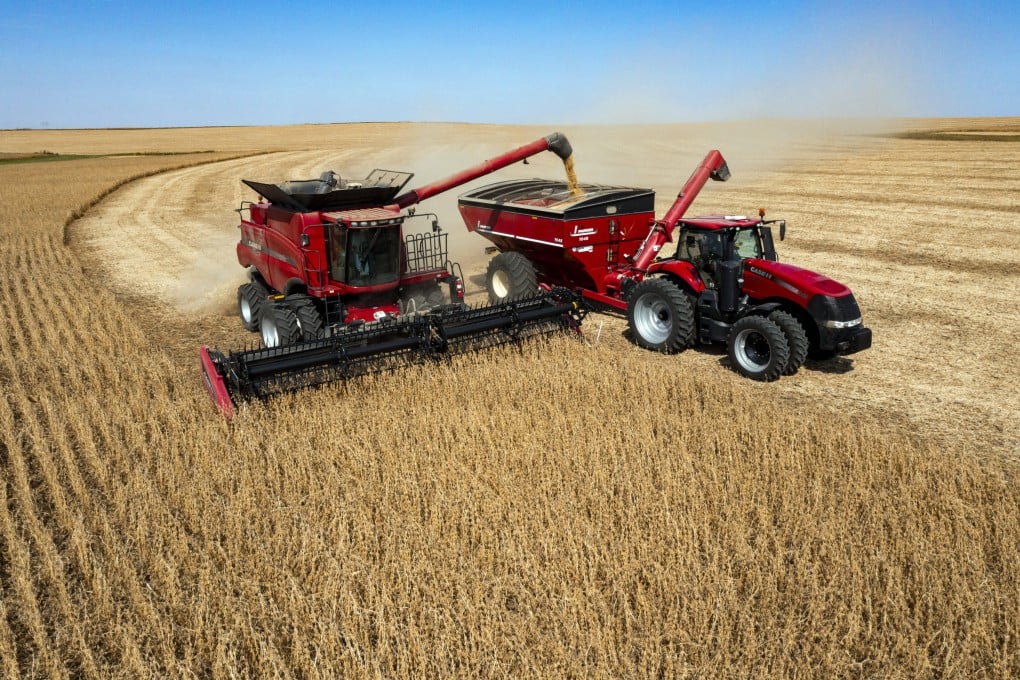
Researching International Suppliers
Importing farm machinery from abroad requires careful planning and execution. A critical step is researching international suppliers. This ensures you find reliable partners and quality products.
Understanding the market is essential. Different countries have diverse offerings in farm machinery. Some may offer advanced technology, while others focus on affordability. Knowing this helps in making informed choices.
Identifying Reliable Suppliers
Start by identifying suppliers with a good reputation. Check their history and customer reviews. Long-standing suppliers often have established trust. Look for certifications that indicate quality standards.
Evaluating Product Quality
Quality is crucial when importing machinery. Request product samples or detailed descriptions. This helps in assessing the build and functionality. Ensure the machinery meets your farm’s specific needs.
Checking Compliance And Regulations
Every country has different import regulations. Familiarize yourself with these rules. This prevents legal issues or delays. Ensure suppliers adhere to international standards and local laws.
Comparing Costs And Payment Options
Cost comparison is vital for budget management. Obtain quotes from multiple suppliers. This helps in finding competitive rates. Consider payment options that safeguard your investment.
Building A Communication Plan
Effective communication is key to successful importing. Establish clear lines of contact with suppliers. Regular updates ensure smooth transactions. Address concerns promptly to avoid misunderstandings.
Understanding Import Regulations
Importing farm machinery involves understanding international regulations. Ensure compliance by researching necessary permits and paperwork. Familiarize yourself with duties, tariffs, and shipping rules to streamline the process.
Importing farm machinery from abroad can be a rewarding venture, offering you access to advanced technology and competitive pricing. However, understanding import regulations is crucial to ensure a smooth transaction. Navigating through the legal and procedural landscape can seem daunting at first, but with the right knowledge, you can make informed decisions and avoid common pitfalls.
###
Knowing The Essential Regulations
Before you even think about placing an order, familiarize yourself with your country’s import regulations. Each country has specific rules regarding what machinery can be imported, and under what conditions. You might need special permits or documentation.
For example, certain safety standards must be met before machinery can be approved for use. Ensuring compliance with these standards can save you from unexpected delays and fines.
###
Understanding Tariffs And Taxes
Importing machinery is not just about the purchase price; tariffs and taxes can add up quickly. Calculate these costs early in the process. This will help you budget accurately and avoid sticker shock when your machinery arrives.
Are there any tax breaks or incentives available for importing farm equipment? Investigate these possibilities to potentially reduce your expenses.
###
Researching Import Licenses
Do you need an import license for your machinery? Research this requirement thoroughly. Without the correct license, your machinery might be held at customs, leading to additional fees and delays.
Check with your local trade authority to get a clear understanding of what’s needed. This proactive step can keep your import process on track.
###
Checking The Environmental Regulations
Environmental laws can vary significantly from one country to another. Is your imported machinery compliant with your home country’s environmental regulations?
Think about emissions standards, noise levels, and fuel efficiency. Ensuring compliance can prevent legal issues and protect your investment.
###
Handling Customs Documentation
Customs documentation is a crucial part of the import process. Incorrect or incomplete paperwork can result in your machinery being held or even returned.
Work closely with your supplier to ensure all documents are accurate and complete. This collaboration can make the customs process much smoother.
###
Consulting With Import Experts
Sometimes, navigating import regulations can feel overwhelming. Have you considered consulting with an import expert or customs broker? Their expertise can provide peace of mind and ensure you’re following all necessary steps.
An experienced broker can handle complex details and advise on best practices, making your import journey less stressful.
###
Staying Updated On Regulation Changes
Regulations can change, sometimes with little notice. Are you keeping up with the latest updates? Regularly check for changes to import laws that might affect your machinery.
Staying informed can help you adapt quickly and maintain compliance, ensuring your operations continue without interruption.
Logistics And Shipping Options
Importing farm machinery involves navigating logistics and shipping. Choosing the right options can save time and money. Different routes, carriers, and methods exist. Each has unique benefits and challenges. Understanding these can simplify the import process. Consider cost, speed, and reliability. Evaluate each option to match your needs.
Understanding Freight Forwarding Services
Freight forwarders manage shipments from origin to destination. They handle paperwork, customs, and transportation. Their expertise reduces import headaches. They offer door-to-door service. This covers all logistics aspects. Choose a reputable freight forwarder. This ensures smooth and timely delivery.
Choosing Between Air And Sea Shipping
Air shipping is fast but costly. It’s ideal for urgent deliveries. Sea shipping is cheaper but slower. Suitable for bulky machinery. Consider the urgency and budget. Sea shipping offers cost savings. Air shipping provides speed.
Evaluating Container Options
Containers protect machinery during transit. They vary in size and type. Standard containers fit most equipment. Specialized containers handle oversized items. Choose based on machinery size. Ensure proper fit to avoid damage. Containers also affect shipping cost.
Understanding Customs And Duties
Customs regulations vary by country. Duties add to import costs. Research local rules before shipping. Proper documentation avoids delays. Hire customs brokers for expertise. Brokers navigate complex regulations. This ensures compliance and smooth clearance.
Tracking And Insurance Options
Tracking keeps you informed of shipment status. Many carriers offer real-time updates. This provides peace of mind. Insurance protects against loss or damage. Choose comprehensive coverage. Ensure it covers transit risks. This safeguards your investment.
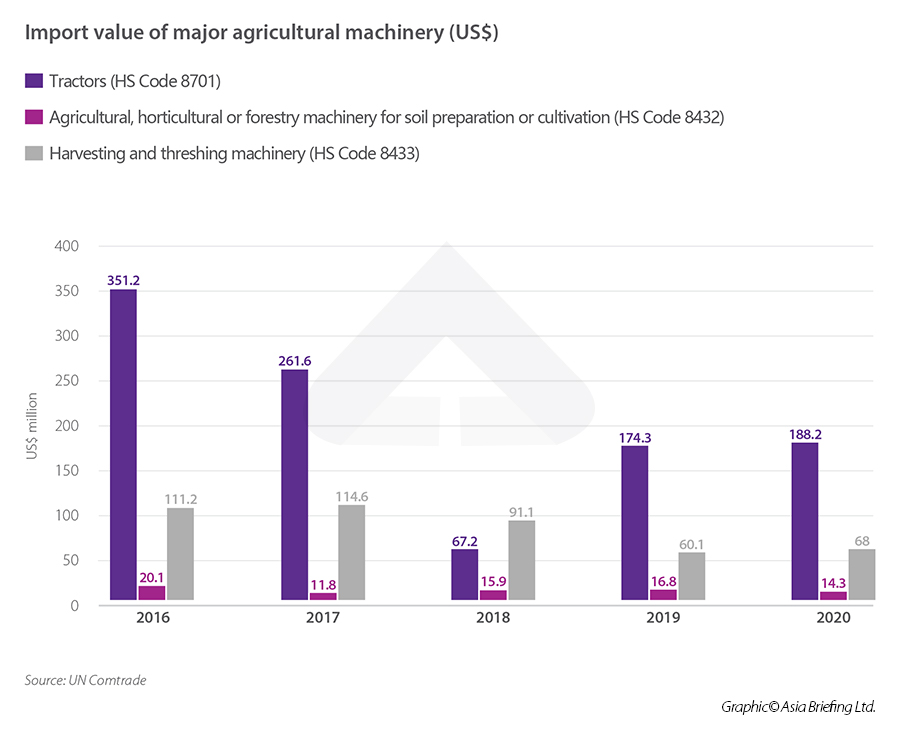
Managing Costs And Financing
Importing farm machinery from abroad can be a smart move. It often offers access to advanced technology and better prices. Yet, managing costs and securing financing is crucial for success. This section explores strategies to handle expenses and obtain necessary funds.
Understanding Total Costs
Calculating the total cost is the first step. Include purchase price, shipping, insurance, and import duties. Don’t forget customs fees. These can add up quickly. Always ask for detailed quotes. This helps avoid surprises later.
Exploring Financing Options
Many financing options exist. Banks may offer loans for machinery imports. Check interest rates and terms carefully. Some sellers provide financing plans. These can be more flexible. Explore government grants or subsidies. They might cover a portion of costs.
Negotiating Better Prices
Negotiation is key in reducing costs. Discuss prices with sellers. Bulk purchases often lead to discounts. Inquire about special promotions. Always compare offers from multiple sellers. This ensures the best deal.
Planning For Hidden Expenses
Hidden expenses can surprise importers. Plan for storage fees and maintenance costs. Consider currency exchange rates too. Fluctuations can affect total expenses. It’s wise to set aside a contingency fund. This prepares you for unexpected costs.
Using Financial Advisors
Consulting a financial advisor can be beneficial. They offer insights on cost management. Advisors help in choosing the right financing option. They also guide through the import process. This expertise can save time and money.
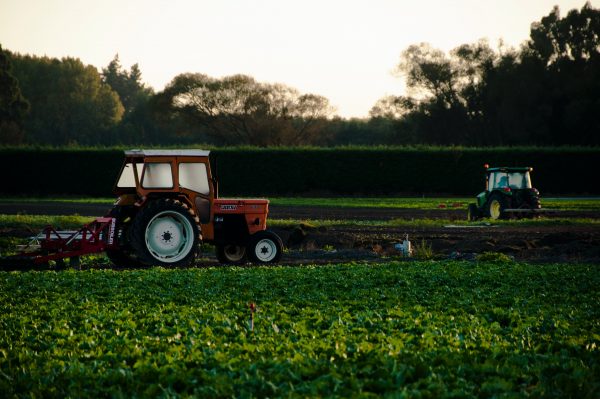
Conclusion
Importing farm machinery offers many benefits. Cost savings and advanced technology are key. Start by researching reliable suppliers. Understand import regulations clearly. Ensure all documents are in order. Choose a trusted shipping method. Pay attention to customs duties and taxes.
Compare prices and quality for the best deal. Keep communication clear with suppliers. Protect your investment with insurance. Remember, careful planning leads to successful imports. Your farm productivity can improve significantly. Follow these steps for a smooth import process. Happy farming with your new equipment!

